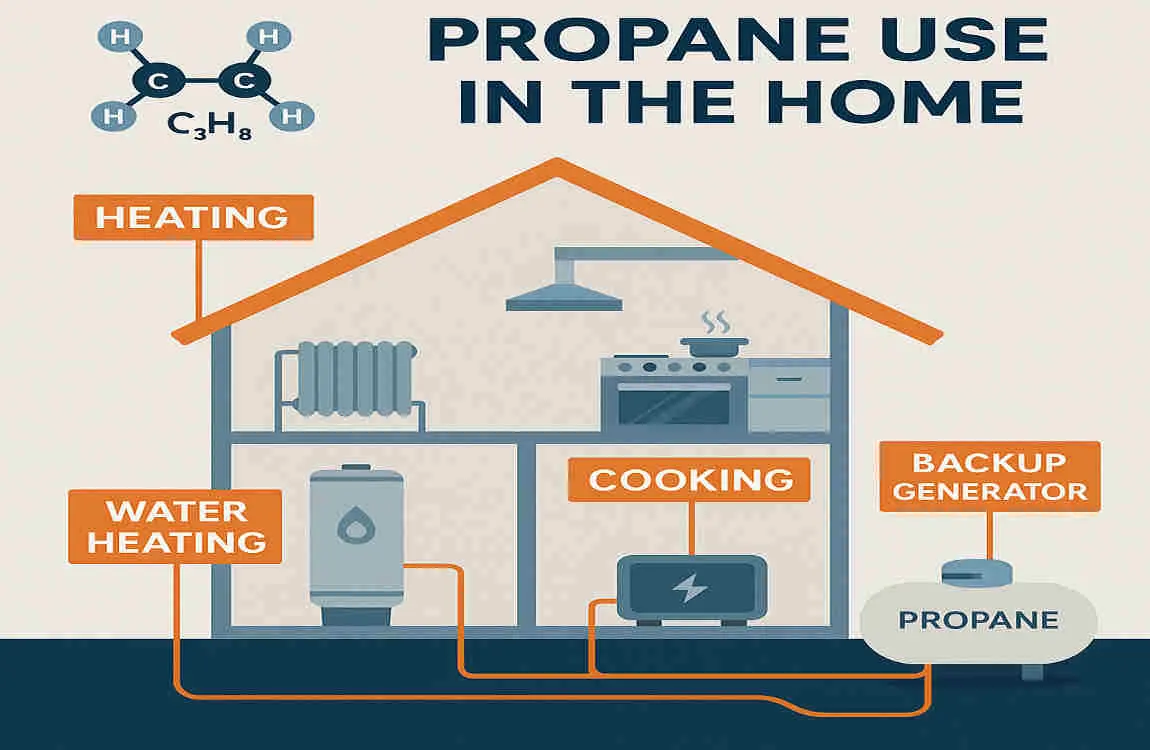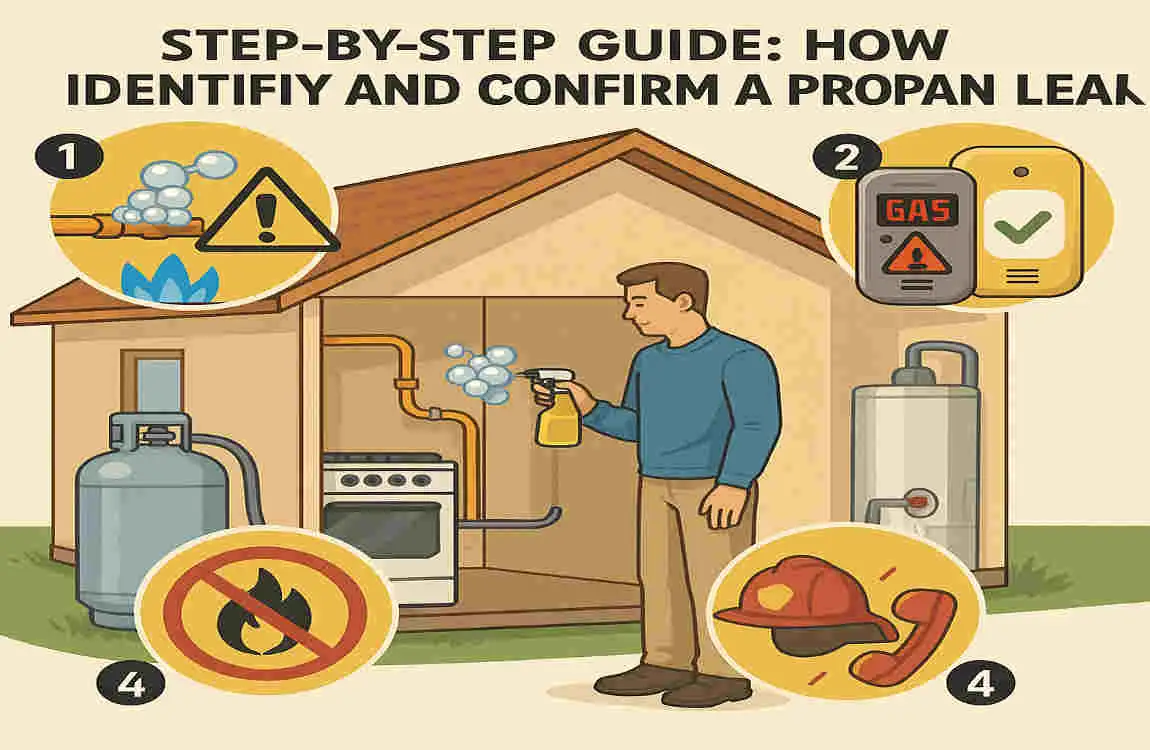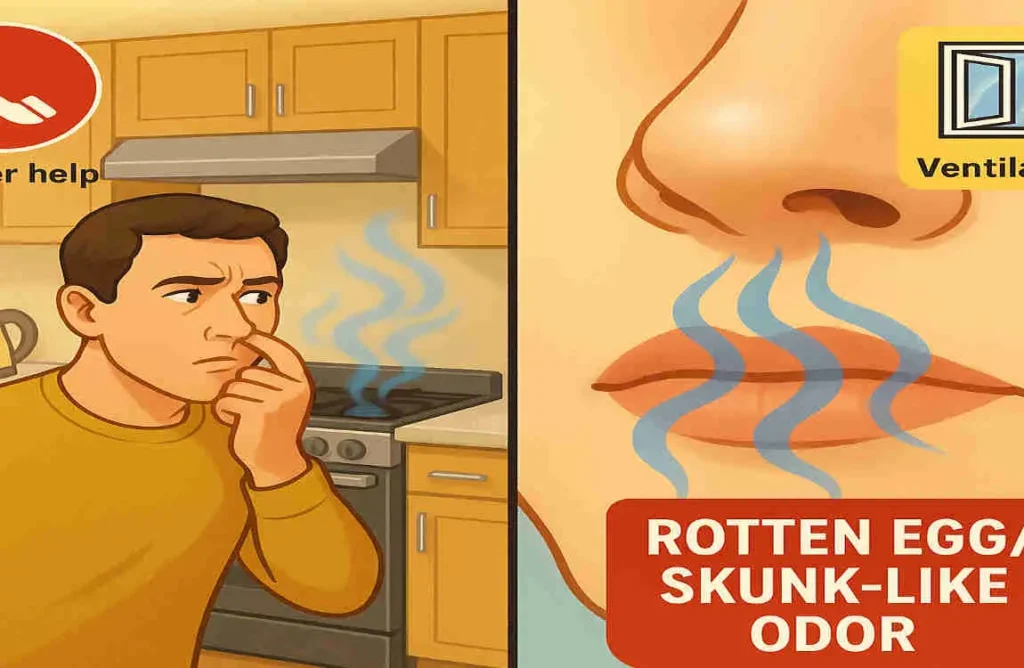Keeping your home safe is a top priority, especially when it comes to fuels like propane. Propane is a widely used energy source in many households worldwide. But what happens if it leaks? Being able to recognize propane odors in your home smell can save lives and prevent property damage.
What is Propane and Why is it Used in Homes?

Before diving into the smell, let’s first understand what propane actually is.
What is Propane?
Propane is a type of gas — specifically, a liquefied petroleum gas (LPG) — that is used as fuel. It is a byproduct of natural gas processing and crude oil refining. Because propane can be compressed into a liquid, it’s easy to store and transport.
Why Do Homes Use Propane?
Propane is widely used in homes because it is:
- Versatile: It powers heating systems, stoves, ovens, water heaters, and even some fireplaces.
- Efficient: Propane burns hotter and cleaner than many other fuels.
- Reliable: Especially in rural or off-grid areas where natural gas lines are unavailable.
Benefits of Propane as a Fuel Source
Using propane offers several advantages:
- Lower emissions compared to other fossil fuels.
- Cost-effective for heating and cooking.
- Portable, making it perfect for outdoor grills or backup generators.
Understanding the role of propane in your home helps highlight why detecting leaks is so important.
Understanding Propane Odorization: Why Propane Itself Has No Smell
Did you know propane is naturally odorless and colorless? That means if a leak occurs, you wouldn’t notice it at all without special additives.
Why Add Odorants to Propane?
To make propane detectable, a chemical called ethyl mercaptan is added. This odorant gives propane a very distinctive smell, making it easy to identify leaks quickly.
How Odorants Help Detect Leaks Early
You may also read (what causes maggots to appear in my house).
The smell acts like an early warning system. The goal is to alert people before propane concentrations reach dangerous levels. Thanks to this, you can take action before any harmful effects occur.
What Does Propane Smell Like in a House?
Now, to the burning question: what does propane smell like in a house?
The Distinctive Smell
Propane’s odor is often described as:
- A rotten egg smell,
- Similar to a skunk,
- Or a sulfurous scent.
These descriptions might sound unpleasant, but that’s precisely the point — it’s meant to be easily recognized and unmistakable.
How It Compares to Other Household Odors
You might confuse propane with other sulfur-based house smells like spoiled food or natural gas leaks. However, propane’s odor tends to be sharper and more persistent.
Why the Smell is Designed to be Recognizable
The added odorant ensures even small leaks don’t go unnoticed. It’s a safety net that gives you time to respond.
Familiar Sources and Locations of Propane Odors in the Home
Knowing where propane leaks might occur helps you stay alert.
Possible Leak Points
- Propane tanks outside or in garages.
- Pipelines running through your home.
- Appliances such as stoves, heaters, and water heaters.
- Valves and connectors that join pipes and equipment.
Areas to Check Regularly
- Your kitchen, where many propane appliances are.
- The basement or garage, especially if you have a propane tank.
- Near water heaters or furnaces.
Seasonal Risks
Leaks can become more common during cold weather because metal contracts, loosening connections. Also, storms or shifts in the ground can damage underground propane lines.
Signs and Symptoms of Propane Leaks Beyond Odor
Smelling propane is the most obvious sign, but there are other clues.
Physical Signs
- A hissing or whistling sound near appliances or tanks.
- Frost or ice forming on pipes or tanks unexpectedly.
Symptoms in People
If you or your family start feeling:
- Dizziness
- Headaches
- Nausea
These could indicate propane exposure and require immediate attention.
Step-by-Step Guide: How to Identify and Confirm a Propane Leak

If you suspect a leak, here’s how to safely check.
Investigate Safely
- Do not turn electrical switches on/off or use phones inside.
- Open windows and doors to ventilate.
- Look for visual signs like frost or damaged pipes.
Soap-Water Test
Mix water with dish soap and apply to connections. Bubbles forming mean a leak.
When to Call Professionals Immediately
If you hear hissing, smell a strong odor, or feel symptoms — leave immediately and call emergency services or your propane provider.
Safety Precautions When You Smell Propane in Your Home
Your safety is paramount. Follow these steps without delay.
Immediate Actions
- Evacuate everyone from the house.
- Avoid any flames, sparks, or electrical devices.
- Ventilate by opening doors and windows from the outside.
Why Avoid Electrical Devices?
Even flipping a light switch can create a spark that ignites propane gas — leading to explosions.
Emergency Contacts
Keep your local fire department and propane supplier numbers handy at all times.
What to Do After Detecting Propane Odor: Professional Inspection and Repairs
After you’ve evacuated and called help, here’s what happens next.
Contact Professionals
Your propane company or emergency responders will:
- Inspect your system using specialized gas detectors.
- Perform pressure tests to pinpoint leaks.
- Repair or replace faulty components.
Routine Inspections
Schedule annual checks to catch issues early and maintain safety.
Preventive Measures to Reduce Propane Leak Risks in Your Home
Prevention is always better than a cure.
Regular Maintenance
- Have your appliances and tanks inspected yearly.
- Replace old or damaged pipes and fittings promptly.
Proper Installation & Ventilation
Ensure your propane system is installed by certified professionals with adequate ventilation.
Educate Your Family
Make sure everyone knows:
- What does propane smell like?
- How to respond if they detect it.
Propane Odor Masking: What It Is and Why It’s Dangerous
Sometimes, something in the environment can block the propane smell — this is called odor masking.
What Causes Odor Masking?
Certain chemicals or contaminants can neutralize the smell, making leaks undetectable by scent.
How to Recognize Masked Leaks
Look for physical signs like hissing or frost, even if you don’t smell anything unusual.
Why Professional Inspections Matter
Only trained technicians with proper equipment can detect odorless leaks safely.
You may also read (5 reasons your house smells like cinnamon).
